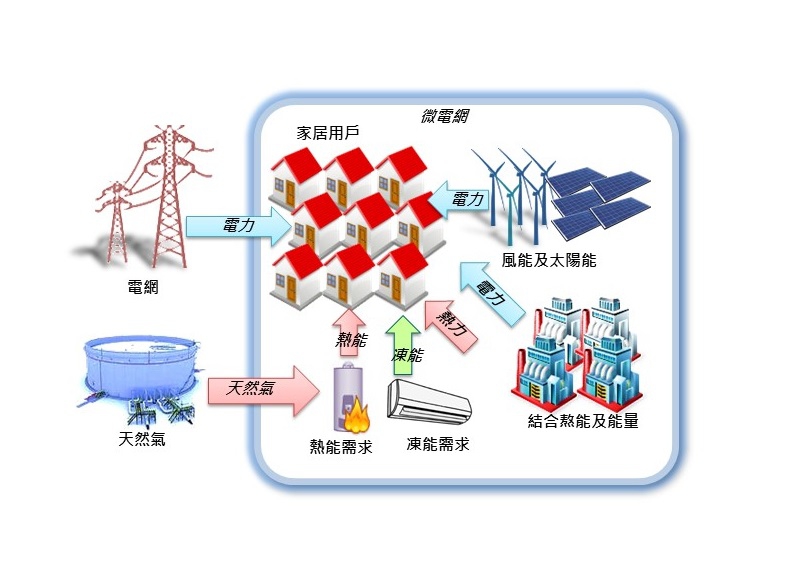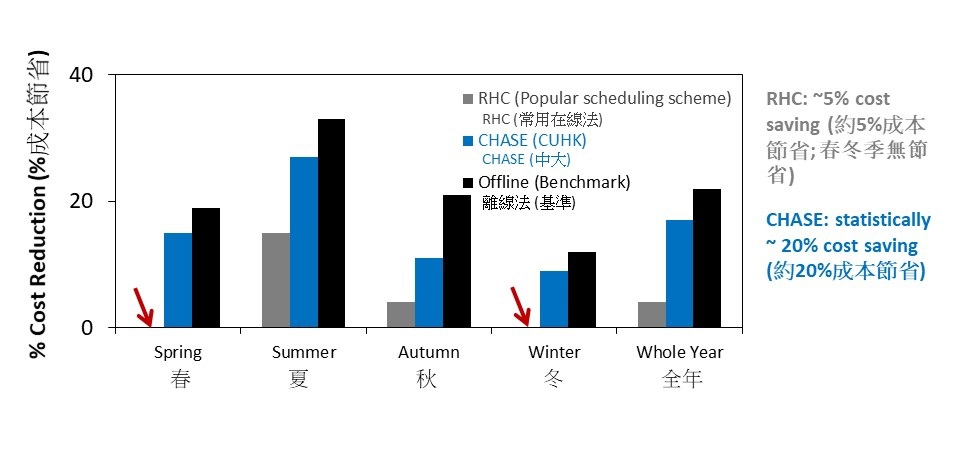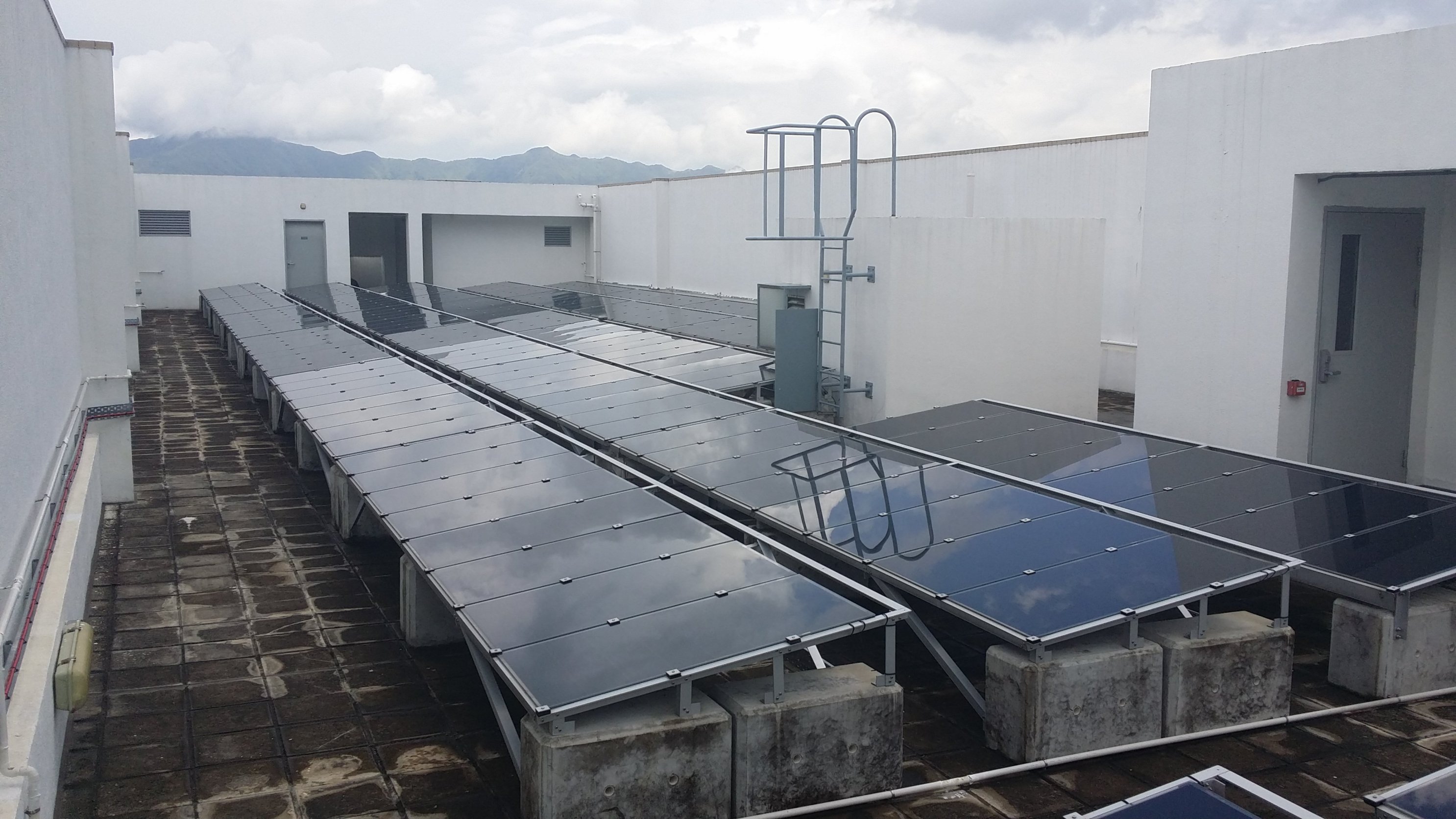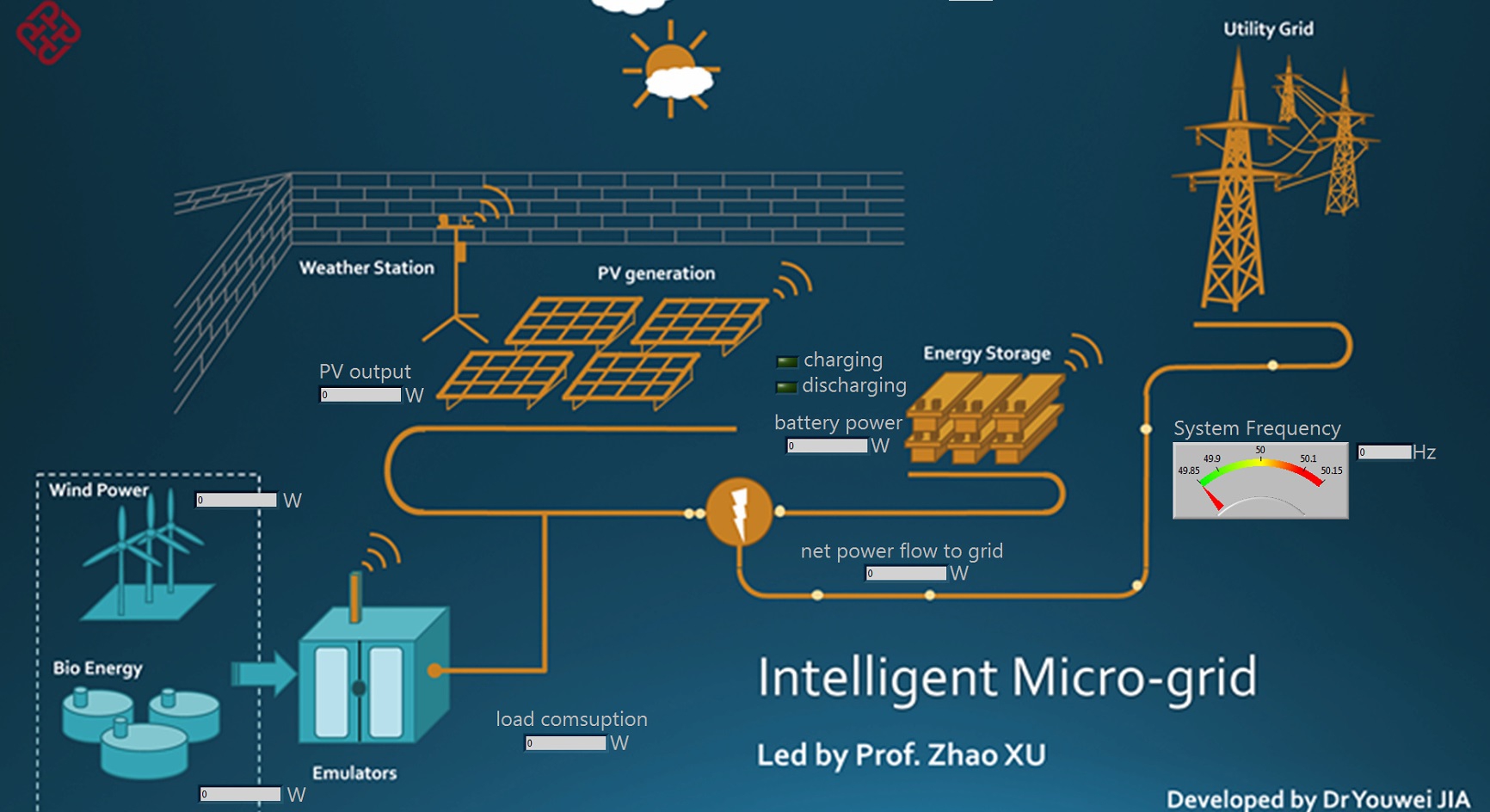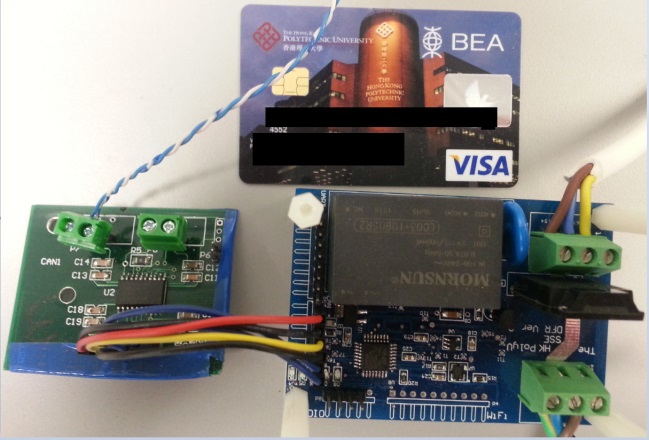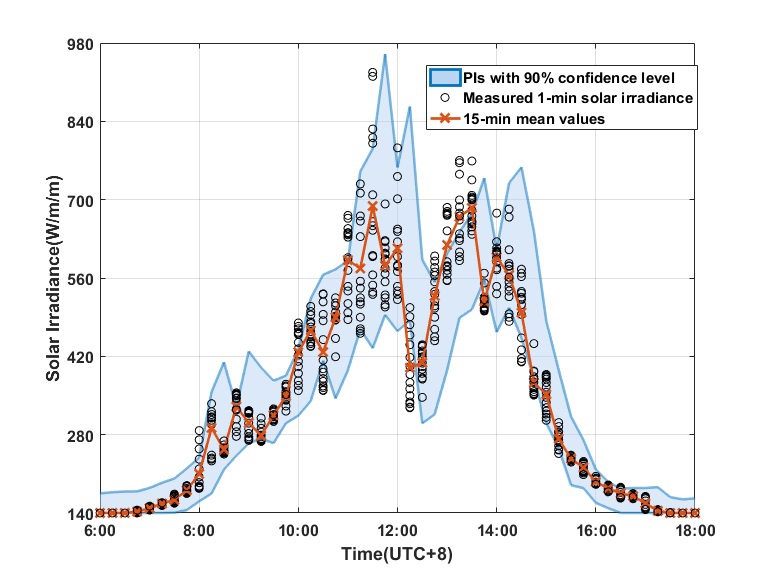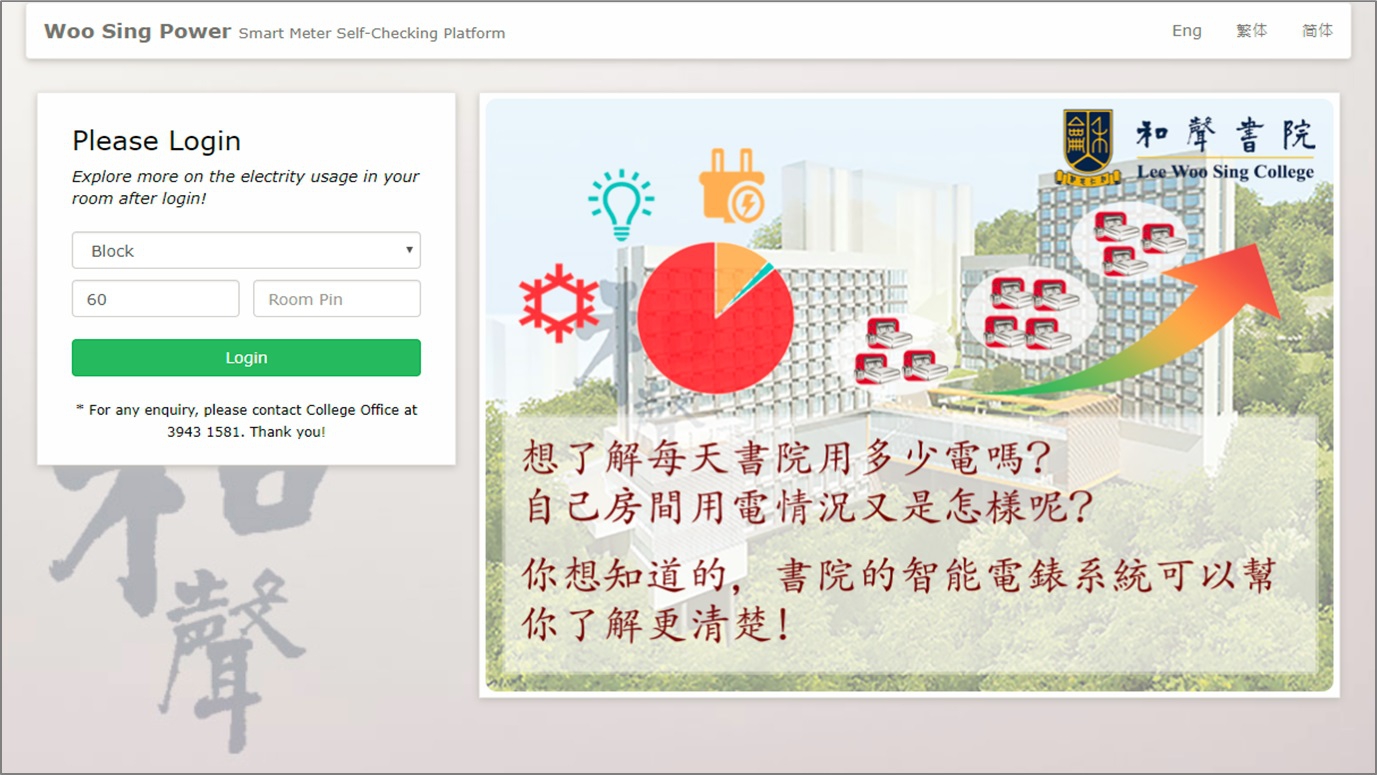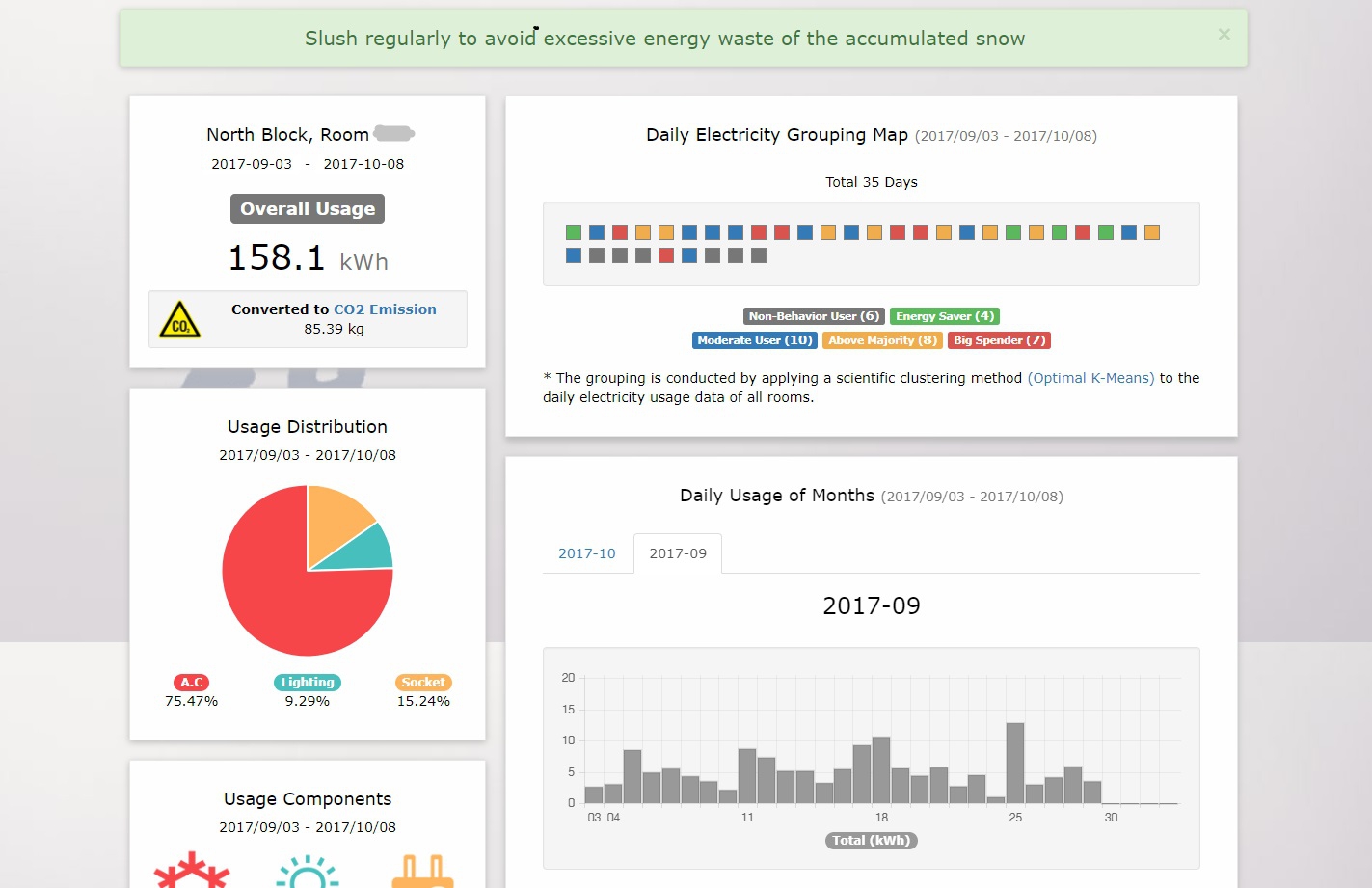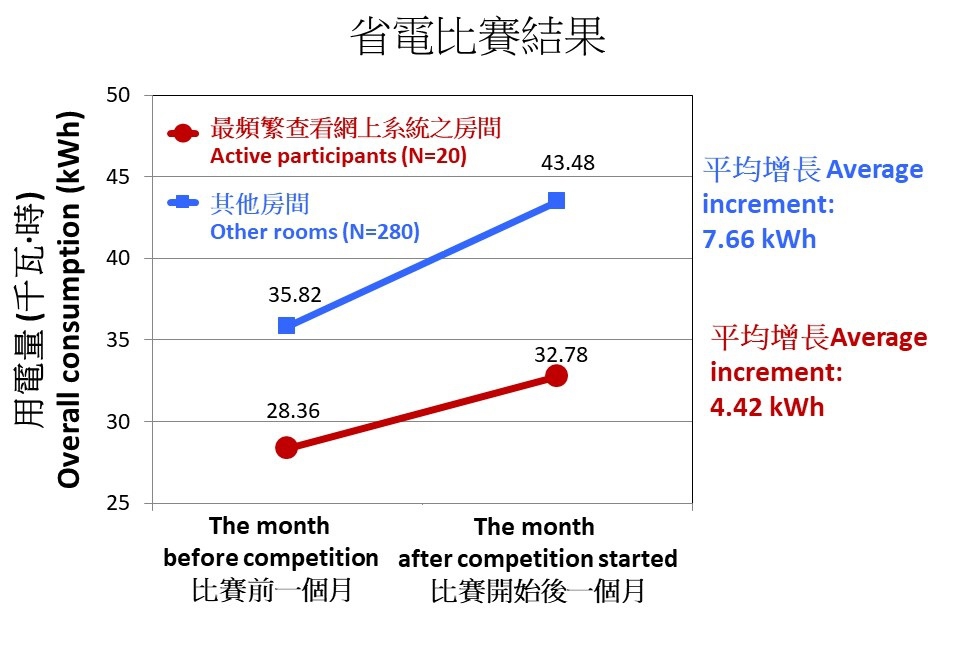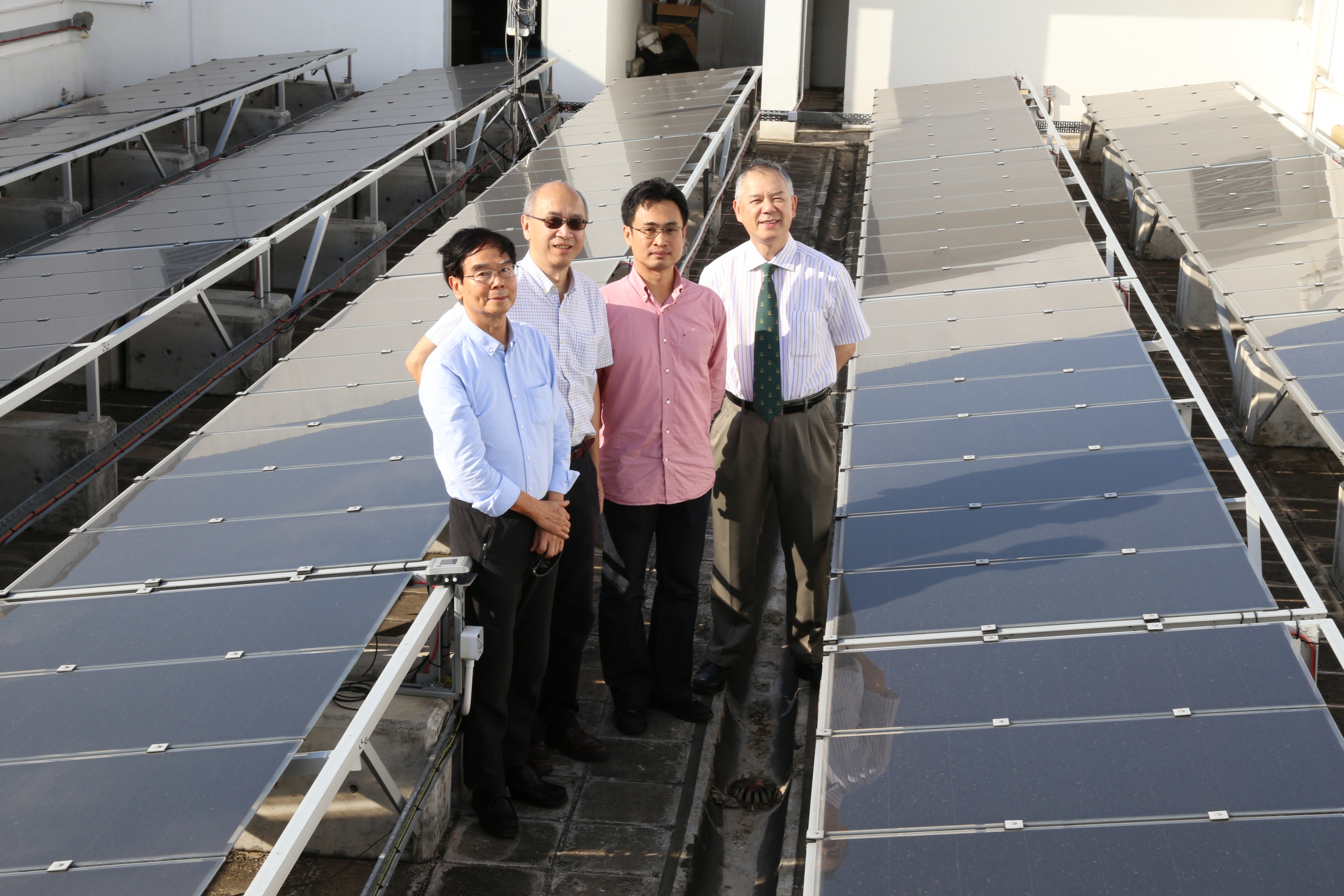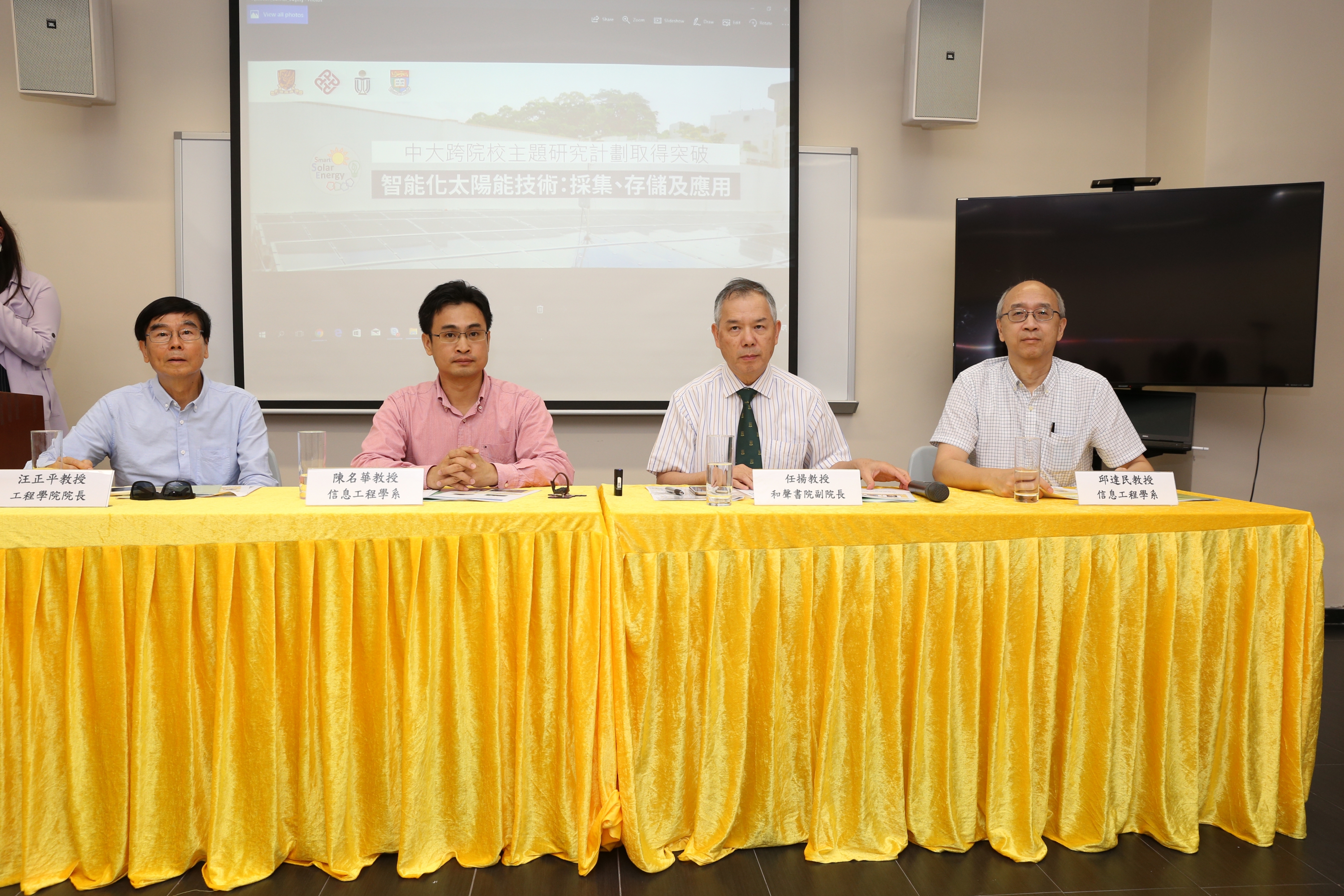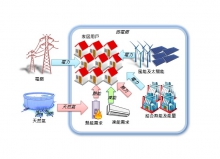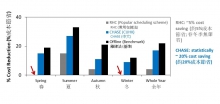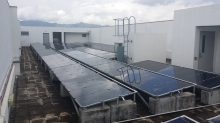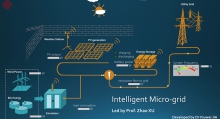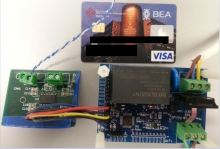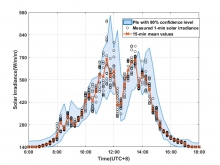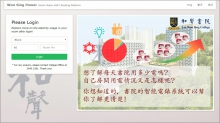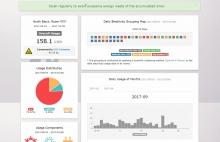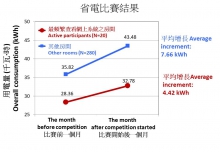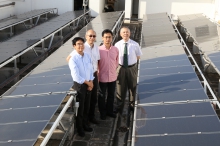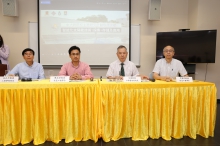CUHK
News Centre
CUHK Cross-institutional Theme-based Research Scheme (TRS) ProjectDeveloping High-performing and Energy-saving Microgrids for Field Implementation
The Chinese University of Hong Kong (CUHK) is one of the most innovative scientific research advocators in combatting climate change. Its mission is to protect the environment through the advancement of renewable energy technology development. In 2013 – 14, CUHK was awarded HK$ 60.33 million by the “Theme-based Research Scheme” of the University Grant Council of the Hong Kong Government for the 5-year project “Smart Solar Energy Harvesting, Storage, and Utilization”.
Led by Prof. Ching-ping Wong, Dean of Engineering, CUHK, more than 20 expert scholars from CUHK, The Hong Kong Polytechnic University, The Hong Kong University of Science and Technology and The University of Hong Kong worked collaboratively through results in stages. Recently, the various achievements of the team were integrated into field application strategies, based at the Lee Woo Sing College, for validating the performance of the renewable energy system.
Prof. Ching-ping Wong said, “Our holistic cross-institutional research team was comprised of various academic experts from engineering and science domains, including information, electrical and electronic engineering, material science, chemistry and physics. Our project achieved various remarkable achievements, putting Hong Kong on the map. In the future we are going to further explore even more breakthroughs, with the ultimate goal of integrating diversified systems for high-performing smart microgrids.”
Online Energy Generation Scheduling for Microgrids
The team has made substantial progress in three focused areas. In the area of power system operation, Professor Minghua Chen, Associate Professor from the Department of Information Engineering, CUHK and his team developed a paradigm-shift online algorithm for cost-minimised energy generation scheduling in microgrids. The algorithm addresses a key and unprecedented scheduling challenge caused by the intermittency of renewable generation in microgrids, achieving effective cost-saving performance and enabling integration of high-percentage renewable generation in microgrids.
A microgrid is a local electric power system with both generation and distribution sub-systems (Fig. 1). A building, a hospital, and even a district can build a microgrid of their own. The network uses solar or other renewable energy generation; it can also use small gas generators to provide electricity in grid-connected or islanded modes. Microgrids can effectively improve power system stability, energy conversion efficiency, and the percentage of renewable energy integration. The United States, Japan, Germany and Denmark are actively promoting the development of microgrids. Renewable energy generation, however, is affected by weather and thus intermittent in nature. The operator also faces difficulty in accurately predicting the local electricity and heat/cooling demand. Given this, conventional energy generation scheduling solutions based on accurate generation/load prediction fail to work in microgrids with unique generation/load characteristics. Therefore, the key challenge in microgrid operation is to optimally orchestrate external energy supply and local energy generation to meet both power and heat/cooling demands with optimised costs.
Professor Minghua Chen and his team broke through the conventional prediction-based scheduling paradigm and proposed an online algorithm called CHASE (Competitive Heuristic Algorithms for Scheduling Energy-generation), which is based on intelligent tracking of the behaviours of perfect dispatch. In a case study of a virtual microgrid based on traces in the San Francisco area, with little or no generation/load forecast information, the CHASE algorithm was able to bring about a remarkable 20% cost saving (Fig. 2). Here, perfect dispatch refers to the optimal scheduling solution assuming full knowledge of all future generation and load information. Recently, the feasibility and performance of the CHASE algorithm has been further validated at the Hong Kong Polytechnic University Microgrid Laboratory. Extensive experimental results show that the generation cost obtained by the CHASE algorithm is close to that of the lowest value reached by perfect dispatch, off by less than 10%.
The next stage of the research is to carry out field tests in Lee Woo Sing College at CUHK, says Prof. Minghua Chen (Fig. 3). When the technology is mature, he believes that it will provide a viable solution for providing electricity in Hong Kong’s outlying islands.
First-of-its-kind Laboratory Microgrid Platform
The research crew of Prof. Zhao Xu, Professor, Department of Electrical Engineering, The Hong Kong Polytechnic University has been aspiring to excellence in the study of the efficient utilization of electricity. Their microgrid experimental laboratory platform – a holistic integration comprising photovoltaics, energy storage and optimization dispatch components – is the first of its kind in Hong Kong, with a total capacity of 4 kw. It acts as a useful platform for validating the work of various dispatch and control strategies. (See Fig. 4 for the network architecture of the laboratory)
Frequency stabilization is the key factor to ensure power system operation safety. Conventionally, frequency regulation is generally provided by the generation side at high cost. The team successfully developed a real-time smart demand controller, the first of its kind in Hong Kong, which can be applied in different home appliances, in sizes as as small as a regular credit card, which is very suitable for home use in Hong Kong (Fig. 5). Thanks to the devised controller, the home appliances are able to contribute to frequency stabilization in real time. That is, non-critical appliances are switched off when frequency significantly drops, and rapidly resume power supply once the frequency is restored. This controller can share the load of frequency stabilization from the user side, bringing great benefits to the entire microgrid system. Its fast response and high controllability make this controller very suitable for application to large home appliances like refrigerators, air-conditioners and water heaters. In contrast to the conventional way, the approach suggested by the team not only improves the response rate, but is also environmentally friendly and substantially reduces costs. Widespread application of this controller holds significant potential for supporting system frequency stability in Hong Kong.
Forecasting the generation and consumption of electricity is essential to achieve energy efficiency. An accurate forecasting strategy can provide important information for supply and demand pattern to the microgrid, assisting policy makers to devise suitable control and dispatch strategy. Here, granular probabilistic forecasting technology has been shown to be a promising approach. Actually, all forecasting approaches involve errors. Probability forecasting is able to reflect different levels of errors by prediction intervals, thereby allowing policy makers to deploy a suitable control strategy to guarantee economic and reliable operation. In collaboration with the Hong Kong Observatory, the team developed high-performing granular probabilistic forecasting technology. (In Fig. 6, the high reliability of the approach was verified by the 90% confidence level of the 15-minute interval prediction results of solar irradiance, which means 90% overlapping of observed values) This technology has been successfully implemented in the short-term probabilistic forecasting of the solar irradiance data of King’s Park at the Hong Kong Observatory, and is applicable to solar and other renewable energies in future.
Smart Energy Management Online System: “Woo Sing Power”
LWS College has actively invested in smart buildings. They installed individual smart meters in all 300 dormitory rooms, as well as a monitoring system in VRV air-conditioning systems and hot water systems in public areas to measure all electricity consumption data digitally. Based on this dormitory usage data, the research team of Prof. Dah Ming Chiu, Emeritus Professor of Department of Information Engineering, CUHK helped build a smart online energy management platform, “Woo Sing Power” (Fig. 7), which provides instantaneous feedback to each room, raises the awareness in the students of energy consumption and conservation and assists administrators to find opportunities and policies to save energy (Fig. 8). Users are able to know their usage pattern compared to others which encourages good behavior towards energy conservation and carbon footprint reduction.
During Feb – Apr 2017, the team designed an energy saving competition for the students. During the month when the weather was getting hotter, it was found that although both the participant group (N=20) and non-participant group (N=280) had an increment in electricity consumption, the average increment of the former (4.42 kwh) was only around 42.3% of the latter (7.66 kwh), which showed that the participants had a higher awareness of energy conservation (Fig. 9) and actually saved energy. The LWS College trial project is setting a good example for the whole university.
About the Research Project “Smart Solar Energy Harvesting, Storage and Utilization”
In 2011, the Hong Kong government established the Theme-based Research Scheme (TRS) to support research at the eight UGC-funded institutions which is more long-term and strategically beneficial to the development of Hong Kong. The Research Project “Smart Solar Energy Harvesting, Storage and Utilization” is the most highly funded under the grand challenge topic “Developing a Sustainable Environment” (HK$ 60.33 million). With additional funding from the participating universities, the total budget is as high as HK$ 76 million. The project adopted a holistic approach, ranging from efficient harvesting of solar energy and storage to utilization. Its aim was to substantially boost the efficiency of solar energy generation, effectively elevate the utilization of electricity, and tackle various obstacles in renewable energy technology, thereby fostering the widespread commercialization of relevant technology. This collaborative research is in line with Hong Kong government policy as well as the “Paris Agreement”.
Various results from the project “Smart Solar Energy Harvesting, Storage, and Utilization” achieved remarkable world records and were published in various renowned international scientific journals papers (See Annex), putting Hong Kong on the map.
Innovation at CUHK
CUHK is recognized as the most innovative university in Hong Kong and is ranked 27th in the Asia-Pacific region by the latest ‘Reuters: Asia Pacific’s Most Innovative Universities’ listing. The University currently has more than 750 granted patents in different jurisdictions worldwide. Many of these patents have been licensed to relevant industries that help bring these innovations to the market to benefit society. In academic year 2016-17, CUHK has received 88 granted patents and filed 183 patent applications for inventions developed in the areas of medical technology, biotechnology, information technology, telecommunications, and materials science.
Fig. 1 Schematic diagram of microgrid operation. (Collaboratively contributed by a TRS collaborator and CUHK alumnus Prof. Sid Chau from Masdar Institute of Technology, Project Manager Miss Mandy Tse and Prof. Minghua Chen.)
Fig.2 The online energy generation scheduling algorithm CHASE (Competitive Heuristic Algorithms for Scheduling Energy-generation) can bring about a remarkable 20% cost saving, given little or no generation/load forecast information.
Fig. 3 Solar panel system on the rooftop of the CUHK Lee Woo Sing College. Recently, the various achievements of the team were integrated into field application strategies based at the College for validating the performance of the renewable energy system.
Fig. 5 The smart demand controller is as small as a regular credit card, which is very suitable for home use in Hong Kong.
Fig. 6 The 15-minute prediction intervals of solar irradiance via the granule-based model have a nominal confidence level as high as 90%.
Fig. 9 Result of the energy saving competition shows that the competition participants have a lower increment of energy consumption (around 40%), showing a higher awareness of energy conservation.
(From left) Prof. Wong Ching-ping, Dean of Engineering, CUHK; Prof. Chiu Dah-ming, Emeritus Professor, Department of Information Engineering; Prof. Minghua Chen, Associate Professor, Department of Information Engineering; and Prof. Yam Yeung, Associate Master, Lee Woo Sing College.


